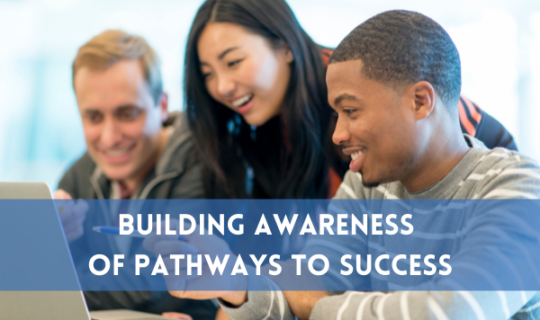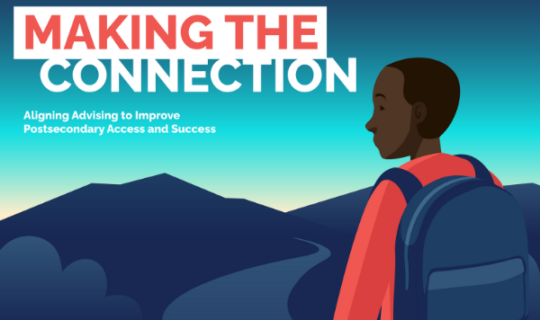Resource: Beyond the Four-Year Degree
Lessons from Pathways Access and Awareness Pilots
Attaining a credential of value is the safest bet for an individual’s long-term economic stability. Unfortunately, far too few students and families understand the full suite of robust postsecondary and career pathways that can lead to success. And much of the guidance afforded to students approaches success from a single lens: a Bachelor’s degree. At a time when significant numbers of recent high school graduates and rising seniors, especially students of color and low-income students, are reconsidering their plans beyond high school, it is imperative that communities offer direct support to help them envision their future and navigate their own path toward workforce success.
To address this need, ESG partnered with the Walton Family Foundation (WFF) to gather additional insights from the field by supporting a cohort of seven leading organizations with designing, implementing, and evaluating pilots to expand their current approaches to incorporate messaging around multiple postsecondary pathways.
The participating organizations, listed below, included national college access organizations, state and regional intermediaries, and communications firms
- Austin Chamber of Commerce
- College Advising Corps
- Get Schooled
- Get2College
- OneGoal
- PeerForward
- shift_ed
Collectively, they piloted and tested numerous approaches, including:
- Direct-to-student communications (e.g. texting, chatbots, social media, videos, apps);
- Curricula and programming (e.g. in-person and e-learning training modules, databases, new staff roles); and
- Capacity building of advisors (e.g. formalized coursework, college and career fairs, summer bridge programs).
ESG has compiled key lessons learned from the pilots in this resource, which includes an overview of the initiative; descriptions of the core elements and outcomes of each of the organization’s pilots; common implementation challenges around data, capacity, and partnerships; and emerging recommendations for the field.
This work builds upon ESG’s prior efforts to strengthen advising, including a communications toolkit funded by the Carnegie Corporation of New York to help districts, schools, and other leaders inform students, families, and educators about the shifting workforce landscape and postsecondary pathways that can open doors to long-term economic success and a microsite on aligning advising systems across K-12, higher education, and the workforce.
To learn more, contact Lauren Norton (lnorton@edstrategy.org).







